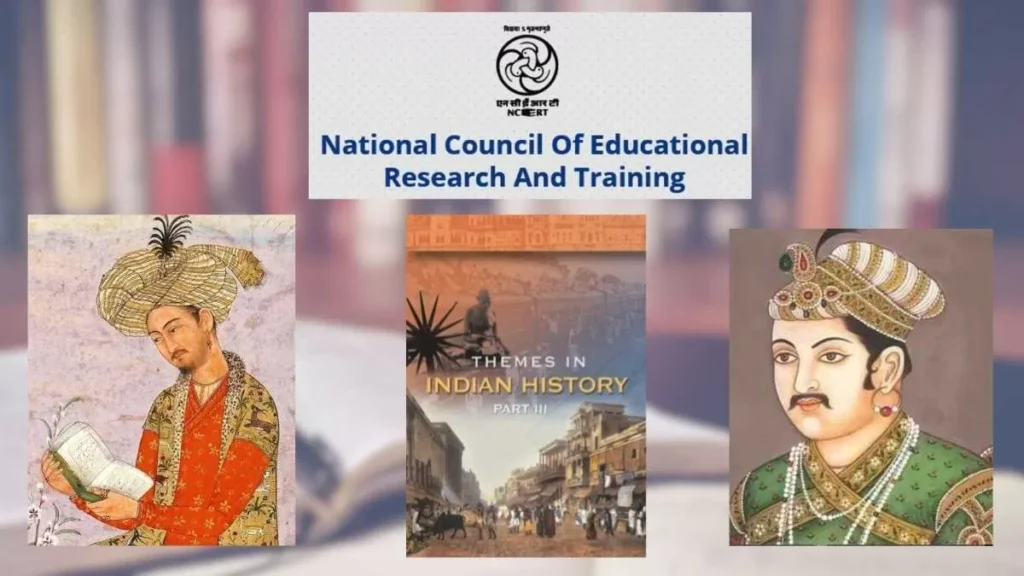NCERT has dropped all mention of the Mughals and the Delhi Sultanate from its Class 7 history textbooks as part of its new curriculum revamp. The step is part of an overall effort to bring curriculum content in line with the provisions made in the National Education Policy (NEP) and the National Curriculum Framework for School Education (NCFSE) 2023, which stress incorporating Indian traditions, indigenous knowledge systems, and cultural ethos into the curriculum.
As per reports, the new edition of the Class 7 Social Science book, Exploring Society: India and Beyond, presents fresh chapters focusing on ancient Indian dynasties like the Magadha, Mauryas, Shungas, and Sātavāhanas. These new additions are designed to instill an “Indian ethos” among students, whereas mentions of Muslim rulers like the Tughlaqs, Khaljis, Mamluks, and Lodis, along with a detailed two-page chart on Mughal emperors’ contributions, have been erased entirely.
NCERT authorities argue that the revamp is a part of a gradual process of rationalisation that was first started during the Covid-19 pandemic to cut down academic load. At the time, chunks were cut down, but this is the first time all material related to the Mughals and Delhi Sultanate has been removed entirely.
The revision of the textbook has added a new chapter called “How the Land Becomes Sacred” that discusses sacred places in India and around the world that pertain to predominant religions such as Hinduism, Islam, Christianity, Judaism, Zoroastrianism, Buddhism, and Sikhism. The chapter expounds on such sacred geographies as the Char Dham yatra, the twelve jyotirlingas, sacred confluences of rivers, and Shakti pithas. It also includes a quote from Jawaharlal Nehru describing India as a land of pilgrimages, implying a subtle mix of spiritual heritage and nationalism.

The NCERT textbook revamp also throws up an important question: is the rewriting of Mughal and Sultanate-period content to redefine historical accounts or go with a cultural reassertion agenda?
Apart from the revision of historical content, the NCERT textbook now features discourse on turning points marking democratic rights in India. For example, one part tells the story of how, until 2004, Indians were not permitted to hoist the national flag at home. The story informs that a citizen took the government to court and, as a result, a landmark Supreme Court ruling declared flying the tricolour as a part of the Fundamental Right to Freedom of Expression. This addition is intended to provide civic consciousness while reaffirming national pride.
The updated textbook also covers India’s caste system, depicting the “varna-jati” system at first as a system that offered social order but later became static under British colonial rule, leading to social inequality. Critics say that this is a simplistic and sanitized depiction of a complex and deeply entrenched social hierarchy.
Another notable addition is a chapter on the Maha Kumbh, referring to the attendance of more than 660 million individuals. But the textbook avoids the unfortunate 2013 stampede during the event, in which 30 pilgrims died and dozens were injured. The absence of reference to this episode has raised alarms about selective presentation of history.
NCERT officials made it clear that the modifications proposed so far are only half of the textbook, and the second half is to be released in the next few months. Officials, however, did not comment when asked about the chances of reinstating cut pages in the next edition.
The curriculum reform has sparked heated criticism from opposition leaders and historians as well. Critics have leveled charges against the NCERT for indulging in “saffronisation” of education by giving preference to material that serves the ideological model of the ruling party. Critics contend that excluding the Mughal and Delhi Sultanate phases dilutes the pluralistic and composite character of Indian history.
This row is not a new one. Earlier, NCERT had dropped references to the 2002 Gujarat communal violence from textbooks on political science. NCERT Director Dinesh Prasad Saklani had justified the step in an earlier interview by saying that including such information may make children “negative citizens.” The reason given was to shield impressionable young minds from the psychological effects of violent history.
In spite of the criticism, NCERT reaffirms that its curriculum changes are pedagogy-driven and meant to respond to the philosophical ambitions of NEP 2020. The policy encourages the use of Indian knowledge systems, fostering national pride, and decolonization from colonial approaches that have historically controlled historical education in Indian schools.
Meanwhile, the education stakeholders wait for the second half of the textbook to determine if the omissions are permanent or reversible. Meanwhile, the controversy over the NCERT’s changes is bound to gain momentum, with students, teachers, and historians split over where India’s school education is headed.
As the academic year continues, NCERT’s role in shaping the upcoming generation’s conception of Indian history and identity continues to be at the center of national debate.
ALSO READ
NCERT Faces Backlash Over Musical Titles for English Textbooks
Why Are NCERT Hindi Titles for English Books Causing Confusion